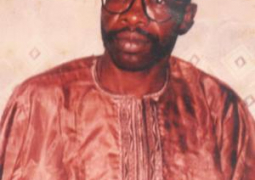
Convened by the Gambia government on behalf of the seven-member ECOWAS Contact Group on Guinea Bissau that consists of Benin, Cape Verde, The Gambia, Guinea Conakry, Nigeria, Senegal and Togo, the meeting also looked at the next steps in the resolution of the current crisis in the country in line with the decisions of the 26th April 2012 extraordinary summit of regional leaders held in Abidjan.
The summit had set up the contact group, and urged the stakeholders to submit to the mediation efforts of ECOWAS with a view to agreeing the modalities for a “consensual transition through the holding of elections within 12 months taking note of the 16th April 2012 commitment by the military command to accept the restoration of constitutional order based on modalities to be worked out with the help of ECOWAS”.
The efforts are intended to end the current crisis which was sparked by the 12th April military takeover, which disrupted an ongoing political programme to elect a replacement for the late President Malam Becai Sanha who died in January 2012.
The first round of the inconclusive election was held on 18th March 2012 with the run-off scheduled for 29th April 2012, butwas disrupted by the military command following protests by opposition parties about the outcome of the first round.
The group, which is chaired by Nigeria, was set up by the 26th April 2012 extraordinary summit of ECOWAS leaders held in Abidjan to coordinate the follow up actions regarding the implementation of the decisions of the summit in relation to Guinea Bissau.
The summit had, among other things, reaffirmed the regional leaders rejection of the coup; condemned the disruption of the political process and the establishment of a transition by the junta, contrary to a written commitment to immediately restore constitutional rule, and urged the stakeholders to agree the modalities for a consensual transition programme through the holding of elections within 12 months.
It had threatened to impose targeted sanctions against members of the military command, as well as diplomatic, economic and financial sanctions against the country, if the military command failed to accede to these decisions within 72 hours.
Addressing the opening ceremony yesterday, President Yahya Jammeh underscored the need for Africans to unite, noting that in the midst of abundant wealth, Africans are the poorest of the poor due to senseless wars and divisions.
Noting
that Africa today, as has always been, is the richest continent in terms of
mineral resources, Jammeh said “anywhere around the world they talk about
poverty and destitution, it is synonymous with
He
stressed that “in as much as ECOWAS want peace for the people of
“You can only do that when the country’s interest takes precedence over personal, tribal and religious considerations. Whether you believe in God or not, God is the supreme authority; so you select who is to lead whether you like it or not,” he stated.
“We have nothing against the people of Guinea Bissau; ECOWAS is here to help you solve your problems, but I can also assure you that ECOWAS’s patience is running out,” Jammeh told stakeholders, questioning the number of deaths of presidents and army chiefs in Guinea for the past seven years.
“Here
you have to make a choice; we are here to tell you that, as a last resort, for
you to choose between a peaceful resolution with ECOWAS and yourselves or
ECOWAS will take measures to put an end to what is going on in
Emphasizing that ECOWAS will not allow less than 10% of the population in Bissau to hold the people of Guinea Bissau at gunpoint, and at ransom, the Gambian leader acknowledged that “we all have problems, we all have divergent of views”, but stressed that “enough is enough”.
“You cannot solve all problems by violence or by the barrel of the gun. This is unacceptable. So we have a choice; the deadline given by ECOWAS expires today midnight (yesterday) and the decision is very clear; if we don’t come to a consensus based on what ECOWAS has proposed, the sanctions will come into effect automatically today (yesterday) at midnight,” Jammeh noted.
Further stressing that this was a last ditch attempt to avoid an intervention, Jammeh told stakeholders in Guinea that ECOWAS is not an enemy, but the Guinean stakeholders should understand that one unstable member of ECOWAS makes the entire ECOWAS region unstable.
Also
speaking at the opening of the meeting was the President of the ECOWAS
Commission, Kadre Desire Ouedraogo, who said the meeting was convened to define
with the stakeholders in
“This is a historic day for you and the ECOWAS Commission to meet and seek for a sustainable solution to the crisis in Guinea Bissau,” he said.
He reaffirmed ECOWAS’s commitment to accompany Guinea Bissau in the process of ensuring a constitutional stability, the continuation of the electoral process and the application of reforms in the defence and security sector.


